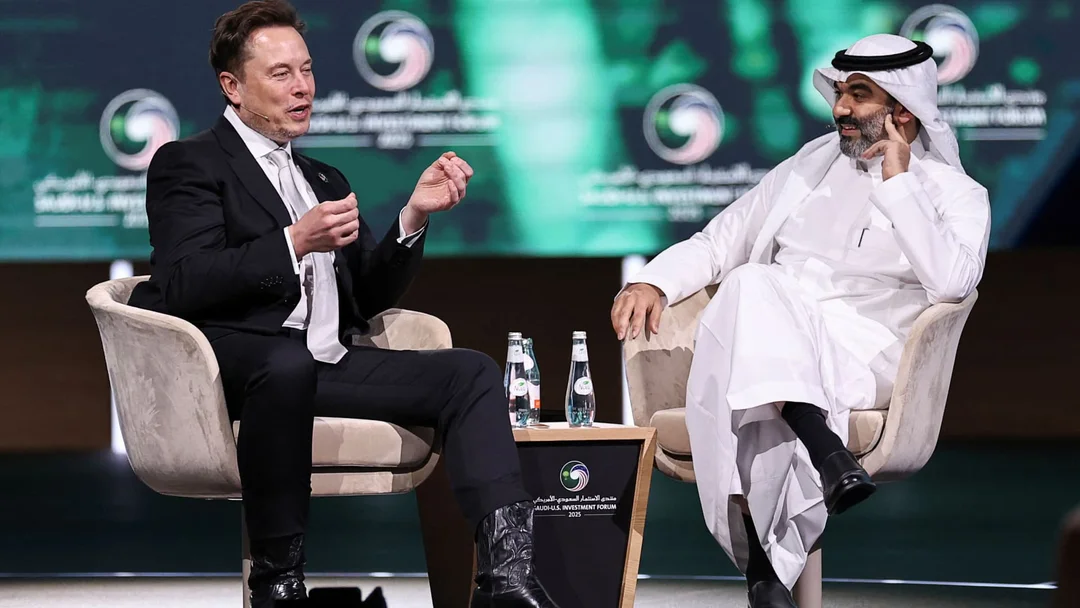
Starlink Approved in Saudi Arabia: Musk’s Deal During Trump’s Visit Signals Major Tech Push
Elon Musk has announced that Starlink, SpaceX's satellite internet service, has been approved for maritime and aviation use in Saudi Arabia. This announcement coincided with President Donald Trump's visit to the kingdom, where Saudi Arabia committed to investing $600 billion in the United States.
The news broke during an investment forum in Riyadh, attended by numerous U.S. tech executives. Musk also mentioned the potential for bringing Tesla robotaxis to Saudi Arabia, emphasizing the excitement of having autonomous vehicles in the kingdom. He also showcased Tesla's Optimus humanoid robots to Trump and Saudi Arabia's crown prince, Mohammed bin Salman bin Abdulaziz Al Saud.
"I think it would be very exciting to have autonomous vehicles here in the kingdom, indeed, if you're amenable," Musk said. Furthermore, he expressed gratitude to the Kingdom for approving Starlink for maritime and aviation use.
Musk's Starlink deal and the discussion around Tesla’s advanced technologies highlight Saudi Arabia's increasing interest in embracing cutting-edge advancements. It also underscores the deepening ties between U.S. tech companies and the Saudi Arabian government.
The event also featured Nvidia CEO Jensen Huang, who announced the sale of over 18,000 of Nvidia's latest artificial intelligence chips to Saudi Arabian company Humain. This further emphasizes the kingdom's intent to become a significant player in the AI landscape.
This isn't Musk's only connection to Saudi Arabia. Saudi Arabia's Kingdom Holding Company and the private office of Prince Alwaleed bin Talal own a stake in Elon Musk's newest major venture, xAI, which he recently merged with X (formerly Twitter).
During Trump's visit, the U.S. also agreed to a substantial arms package worth nearly $142 billion with Saudi Arabia. This indicates a strengthening of defense cooperation between the two nations.
The approval of Starlink in Saudi Arabia marks a significant milestone for both SpaceX and the kingdom. It opens up new possibilities for internet connectivity in the region and positions Saudi Arabia as a forward-thinking adopter of satellite technology. What implications might this increased connectivity have for the region, and how will it influence future technological collaborations between the U.S. and Saudi Arabia?
Share your thoughts and insights in the comments below. How do you see this agreement shaping the future of technology in Saudi Arabia?